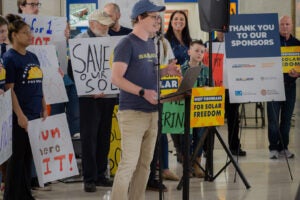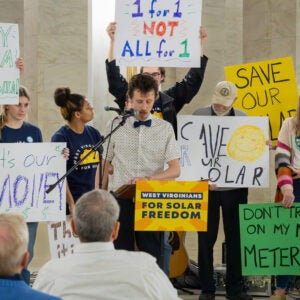In 2023 alone, we applied for REAP support for 64 solar projects in central Appalachia.
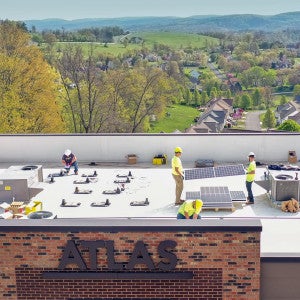
Atlas Chiropractic. Morgantown, WV
HUNTINGTON,WV – Solar Holler, one of Appalachia’s largest and most innovative solar installers, today announced the company could bring a total of $6.5 million in federal Rural Energy for America Program (REAP) grant funds to the region as a result of applications submitted in 2023.
Solar Holler’s expert team has been submitting REAP grants on behalf of farms and organizations from throughout the region for several years, but increased capacity to prepare REAP applications when the Inflation Reduction Act dramatically grew the pool of available funds and increased the grant cycle frequency from bi-annually to quarterly.
“The Inflation Reduction Act continues to deliver great investments for West Virginia, from reducing the cost of prescription drugs for our seniors to bringing new good-paying jobs to the Mountain State.” Said West Virginia Senator Manchin. “I was also proud to have championed an expansion of REAP grants in the IRA that are helping our farmers and West Virginia small businesses become more energy efficient, helping to save money and lower emissions while supporting jobs for local communities — something all West Virginians can be proud of.
Nationwide, the IRA has made up to $1.3 billion available in REAP funding. Solar Holler is taking full advantage of the temporary program expansion by helping eligible organizations from across West Virginia, Virginia, Kentucky, and Ohio secure a staggering amount of the competitive funds. Historically, the company’s approval rating for REAP grant applications is 100% for qualifying organizations. According to Founder and CEO, Dan Conant, the company has no plans of slowing down in the first two quarters of 2024 while the funding pool remains inflated.
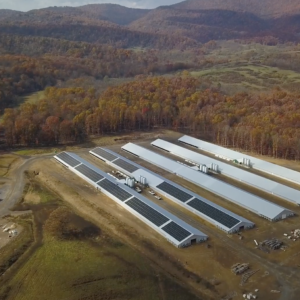
Oak Tree Farm. Old Fields, WV
“Solar Holler has played a pivotal role in bringing federal REAP dollars to the coalfields and beyond” said Conant. “I’m incredibly proud of that achievement and grateful for the opportunity REAP is bringing to rural Appalachian economies. We’re ready to make the most of the next two grant cycles so we can continue to unlock the benefits of solar in rural America.”
The impact of REAP extends far beyond the actual grant amounts. According to Conant, the transition to solar can make good economic sense with or without the added benefit of REAP for many organizations. In other cases however, the grant offsets just enough cost to push the project into a scenario where it produces tangible and often significant savings. If REAP is awarded to all 64 eligible Solar Holler projects, the lifetime savings produced by those solar arrays will reach nearly $20 million. That’s $20 million in utility savings plus the possible $6.5 million in REAP grants that could be redirected into Appalachian economies through the program.
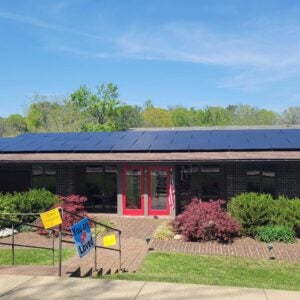
Rockbridge Area Hospice. Lexington, VA
“Rural small businesses and communities are the backbone of our economy and investing in them is an investment in our future.” Said Ryan Thorn State Director for West Virginia Rural Development “When we power our rural West Virginia communities with modern, renewable energy infrastructure it creates good-paying jobs and supports opportunities for people to drive economic prosperity and security. In the last year, we have invested more than $5 million in 43 renewable energy and energy efficiency improvements that will help rural business owners’ lower energy costs and bolster their bottom line, allowing them to then invest back into their businesses and communities.”
John Brunetti, owner of Brunetti’s Italian Bakery in Wayne County, West Virginia, represents one of the many organizations that stands to benefit from REAP. He appreciates how the program benefits his business from both an economical and a sustainability perspective, saying it’s allowing him to “Invest in renewable energy systems, energy efficiency upgrades, and other sustainable practices that not only benefit the bottom line, but also contribute to environmental stewardship and long-term viability.”
While the majority of Solar Holler’s REAP grant applications have been submitted on behalf of West Virginia based farms and small businesses, organizations in parts of Ohio, Virginia, and Kentucky also meet the qualifying criteria.



